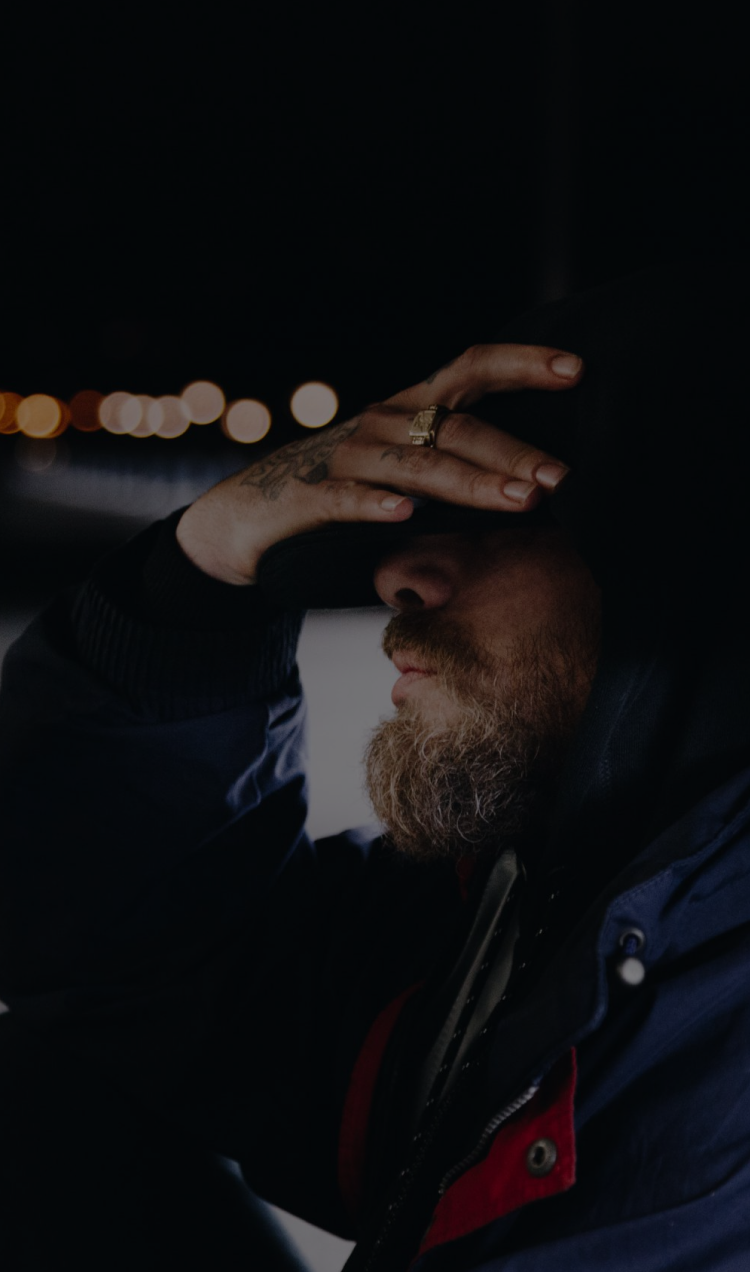Whether you’ve been in recovery for a few days or a few years, overcoming cravings from substance use disorder is no easy feat. Cravings can cause you to feel out of control, anxious, or panicked at the thought of relapse. Unfortunately, cravings are an inevitable part of addiction recovery. The good news is you can learn to cope with cravings and triggers in a healthy way without using and restarting the addiction cycle.
Withdrawal from some substances like alcohol, benzodiazepines, opiates, or meth can be dangerous without medical help. If this applies to you, talk to your doctor or an addiction specialist before quitting.
What is a Craving?
Cravings¹ are a physical and psychological experience, usually the most disruptive after a period of intense or prolonged use of an addictive substance. Cravings are the strongest two to three days after stopping the drug or alcohol use. This stage is known as withdrawal and can come with significant physical side effects. However, cravings can occur months and years after the last drug or alcohol experience, so it’s crucial to understand how to overcome cravings and triggers in day to day life.
First, understand that cravings are a normal part of sober living. People who have been addicted to substances have a specific chemical makeup in the brain that leads to cravings. There is nothing you can do to prevent cravings, so don’t be hard on yourself when cravings begin; experiencing a craving doesn’t mean there is a problem. Understand that cravings are no indication of weakness or a lack of effort on your part.
Second, know that a craving will end. Overcoming cravings is similar to riding a wave: you have to wait for the craving to peak and crest before it’s gone. What you do with that time can help make the craving more manageable. Understanding that cravings don’t last forever is half the battle.
Finally, remember that recovery is different for everyone. Some people may overcome cravings better than others, some may need specific action plans in place to handle cravings and triggers. Whichever category you fall under is valid and worthy of exploration.
What is a Trigger?
In the context of substance use disorder, a trigger² is a desire to use an addictive substance, sparked by an outside or psychological influence. Think of a trigger as a stimulus or reminder of your desire to use. Since everyone’s recovery journey is unique, triggers depend on the person. Triggers can occur in the form of people, places, or specific situations that trigger a craving.
If you once used every day at the same time, that time of day could be a trigger. If you always used with a specific friend, that friend could be a trigger. If you used when you were upset or anxious, those emotions could be a trigger.
You can’t always avoid triggers, so understanding your triggers and planning for them is paramount for overcoming cravings that follows. While everyone is unique, there are some universal triggers that you can work to manage.
When Can Cravings and Triggers Occur?
Cravings are more likely to occur when psychological triggers are experienced. Unfortunately, there is no way to avoid these situations totally, so planning is vital.
Here are some common reasons why cravings may occur:
- When you experience intense emotions that you once used substances to handle. This can look like stress, frustration, anxiety, depression, or even happiness and pride.
- When you’re around people or situations that once caused you to use. Old friends, familiar places, or even specific parts of your day can trigger a craving.
- When you see others partake in your substance of choice.
- Physical sensations that remind you of your addiction (shaking or fatigue) can trigger a craving.
- Staying in a dysfunctional or isolated living situation can trigger cravings, especially when confronted with dynamics that caused you to use in the past.
- Childhood trauma and abusive family dynamics can lead to coping with substances and can continue to trigger cravings during sobriety.
How to Overcome Cravings and Triggers
Even though overcoming cravings and triggers can seem daunting, there are steps you can take to make it easier. No one in recovery is without triggers and cravings, but having a plan in place can keep you from relapsing.
Plan for Triggers
When you decide to become sober, pinpointing your triggers is key. Take time to think about when you used, how you felt before, during, and after you used, and why you used. Pinpoint any triggers that you notice and write them down. If you’re struggling to identify your triggers, a licensed therapist or addiction specialist can help you see them more clearly. Understanding what sparks cravings can save you from unknowingly walking into triggering situations.
Of course, you can’t avoid all triggers, so make an action plan to cope with them. This can look like having support ready for you in the form of a sponsor or supportive family member. You could keep a list of reasons why you worked so hard to stay sober and review it when you’re triggered. Attending meetings and outpatient programs can also help you plan and overcome cravings.
Recognize the Craving
When you have a craving, don’t push it away. Understand that cravings are inevitable, but they won’t last forever. Don’t be afraid to experience discomfort: it can’t actually hurt you, and you can live through it. Keep the cravings in perspective as you sit with the discomfort until it passes. Then you can feel good about recognizing and overcoming the craving. You can also mark the occasion as a win and revisit that feeling next time a craving comes up.
Exercise
Physically exerting yourself is a great way to get your mind off a craving³. You don’t have to run a marathon or spend hours in the gym, just get outside, take a breath of fresh air, and go for a walk. Walking produces bilateral stimulation, which has a calming effect on the brain. It also allows you to distract yourself by staying in the moment and taking in the sensations you experience on your walk.
Positive Self-Talk
When a craving hits, positive self-talk can keep things in perspective. Remind yourself why you’ve chosen to get clean and the consequences of using. You could write a list of the reasons you made the effort to get sober and review it. Don’t beat yourself up for having cravings — remember that urges are to be expected, and be kind to yourself!
Reach out to Support
Talking to a sponsor, support group, or therapist is a great way to overcome cravings. If you’re experiencing an urge to use, talking to support can help you navigate your desire to use and reframe your commitment to sobriety. Therapy and support groups can also help you with coping skills to make cravings easier in the future.
Ride the Wave
Remember that cravings don’t last forever. On average, the urge to use will last 10-15 minutes. If it’s lasting longer, you may still be in the midst of a trigger. Check in with yourself and see if you can remove yourself from a triggering situation. Be mindful of your body’s sensations, and don’t be afraid of the discomfort that comes with denying cravings. When the craving passes, pat yourself on the back!
How Addiction Treatment Can Help
Addiction treatment and rehab are great resources for getting sober and breaking destructive patterns in your life. Addiction treatment helps you create a plan and develop the tools needed to reduce triggers. It also teaches you about the dangers of drug abuse and what to expect early on in your sobriety. Through addiction treatment, you learn coping skills to overcome cravings and triggers when they come.
Addiction is often paired with childhood trauma or other negative life experiences.⁴ Trauma is tricky because it doesn’t always show up in the ways we expect. Instead, it manifests itself in different ways like poor coping skills, impulsive behaviors, and addiction.
Talking to a licensed mental health professional could help you understand the reason behind your addiction. Once you start unraveling the foundation of destructive tendencies, it gets easier to overcome cravings and prepare for triggers. Beyond that, therapy will help you adapt to a sober lifestyle while teaching you to be your own advocate! With the right resources and coping skills, sobriety is possible.
At All Points North Lodge, we believe in the power of the individual. We’re here to help you with recovery, both in-person at our Lodge in Edwards, Colorado, and via telehealth. Call us at 855-510-4585 or through our online contact form for more information.
Reference
- Jaffe, Adi. “Craving: When the Brain Remembers Drug Use.” Psychology Today, Psychology Today, 21 Feb. 2010, www.psychologytoday.com/us/blog/all-about-addiction/201002/craving-when-the-brain-remembers-drug-use.
- Asensio, Samuel et al. “What Is the “Trigger” of Addiction?.” Frontiers in behavioral neuroscience vol. 14 54. 21 Apr. 2020, doi:10.3389/fnbeh.2020.00054
- “Benefits of Exercise in Addiction Recovery.” SMART Recovery, 22 May 2018, www.smartrecovery.org/benefits-of-exercise-in-addiction-recovery/.
- Khoury, Lamya et al. “Substance use, childhood traumatic experience, and Posttraumatic Stress Disorder in an urban civilian population.” Depression and anxiety vol. 27,12 (2010): 1077-86. doi:10.1002/da.20751
- Patterson, Eric. “Understanding and Overcoming Cravings and Triggers.” Rehabs.com, American Addiction Centers, 4 Nov. 2019, www.rehabs.com/overcoming-cravings-and-triggers/.





